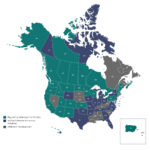The question of whether a Juris Doctor (JD) degree constitutes a doctorate is a topic of ongoing discussion, particularly within academic and professional circles. As a practicing lawyer since 1988, and having navigated the nuances of professional titles in legal and academic environments, the debate around using “Dr.” for JD holders has always been intriguing. It wasn’t until I began teaching as an adjunct professor that the complexities of this issue truly came into focus.
An encounter with a student in a judge’s chamber, who respectfully addressed me as “doctor,” followed by a snide remark from another attorney about my credentials, sparked a deeper exploration into the appropriateness of the “Dr.” title for those with a JD. This exploration has led me to challenge the conventional assumptions against using this title for individuals whose terminal degree is indeed the JD.
My perspective is further informed by my role as an ordained minister. In theological contexts, the title “Dr.” is increasingly common, even among clergy without traditional doctoral degrees. This observation, coupled with an incident where a judge questioned the combination of “pastor” and “Esq.” for clergy with JDs, solidified my conviction that the JD’s doctoral status deserves greater recognition. If the JD is a doctorate, then clergy holding this degree should rightfully be addressed as “The Rev. Dr.”
In the United States, a peculiar situation exists: among professionals with earned doctorates, only Juris Doctors are typically denied the courtesy of the title “Dr.” Examining the historical evolution of the JD degree is crucial to understanding this discrepancy and advocating for a potential shift in protocol.
The Historical Evolution of the Juris Doctor
The Juris Doctor, or doctorate in jurisprudence, is a rigorous three-year professional degree. The perception challenge surrounding JD holders using “Dr.” partly stems from the degree’s past designation as a Bachelor of Laws (LLB).
Harvard University first awarded the LLB in 1820 as an undergraduate degree. The transformation of the JD into a graduate-level doctorate was a gradual process throughout the 20th century. As early as 1902, Harvard Law School faculty proposed awarding the JD, but university approval was not immediate. The University of Chicago Law School, a pioneer in requiring a college degree for law school admission, first conferred the JD in 1903.
The mid-20th century witnessed a significant shift in legal education, with the law degree becoming predominantly a graduate degree, necessitating a four-year bachelor’s degree for law school entry.
According to a 2012 Marquette University Law School blog post, “Between 1964 and 1969, at the encouragement of the American Bar Association, most American law schools … upgraded their basic law degree from the traditional” LLB to JD “to reflect the (by then) almost-universal postgraduate status of the degree.” Despite this upgrade, the tradition against JD holders using “Dr.” persisted in American legal culture.
Interestingly, the doctorate originated in Bologna, Italy, in the 12th century, initially in civil law and canon law, later expanding to medicine and other fields. In continental Europe, the doctorate in law remains prevalent, and the honorific “Dr.” is commonly used.
The American legal profession’s historical reluctance towards advertising, including the use of degrees in professional contexts, further complicated the acceptance of “Dr.” for JD holders.
In 1938, ABA Formal Opinion 183 deemed it improper for lawyers to list degrees on letterheads, considering it mere advertising. However, by 1969, Formal Opinion 321 acknowledged the need for updates, permitting “Dr.” in reputable law lists, academic settings, and international contexts where lawyers are addressed as “doctor.”
The ABA committee in 1969 also linked the issue to the universality of the JD, stating that until the JD became the standard initial law degree (like the MD in medicine), professional use of “Dr.” to differentiate JD holders was not warranted.
Today, the JD is the universal initial law degree in the United States. Therefore, the historical hesitations against using “Dr.” for JD holders are increasingly outdated.
Debunking Arguments Against “Dr.” for JDs
One common argument against using “Dr.” for JD holders is the absence of a dissertation or final research project, typical of PhD programs. However, those who have undergone law school education understand that rigorous research is fundamental to the entire three-year curriculum and integral to virtually all courses. Legal education heavily emphasizes analytical and research skills, arguably at a doctoral level.
Furthermore, other terminal degrees, such as the Doctor of Education (EdD), often do not mandate a research dissertation and may be considered less intellectually demanding than a JD. Yet, EdD holders are commonly addressed as “Dr.” This inconsistency highlights a potential bias against the JD.
In my experience as a university leader, I observed firsthand how the inability to use “Dr.” could be a disadvantage for JDs in academia. During a university presidency search where I was a semifinalist, the faculty search committee, predominantly composed of PhDs and EdDs who used “Dr.,” seemed to subtly underscore my lack of the title. Correcting someone who addressed me as “doctor” felt like a limitation in that academic environment. Interestingly, the successful candidate, a JD who did use “Dr.” during the interviews, faced subsequent controversy and eventually ceased using the title after assuming the presidency.
This anecdote underscores the nuanced and sometimes inconsistent perceptions surrounding the JD’s doctoral status within academia.
Conclusion: Time for Recognition
Traditional titles like “counselor” and “professor” remain appropriate and widely used in legal and academic professions. However, the use of “Dr.” for JD holders is not only appropriate but also increasingly justified given the degree’s rigor, graduate status, and universal acceptance as the primary law degree.
The unofficial prohibition and academic resistance to the title “Dr.” for JD holders are outdated and unwarranted. It is time for a formal reconsideration and adjustment of this practice. With the ABA having removed prior limitations on using the title in specific contexts, establishing a framework for universally accepting “Dr.” for JD holders is a logical next step. Acknowledging the JD as a doctorate in practice, as it is in substance, would align American legal academia with international norms and accurately reflect the degree’s intellectual and professional standing.
See also:
ABAJournal.com: “What do we call a lawyer? A look at attorney titles”
David M. Fryson, the senior pastor of the New First Baptist Church of Kanawha City in West Virginia, is a retired lawyer and a retired founding vice president of West Virginia University’s Division of Diversity, Equity and Inclusion. Fryson currently is a national diversity consultant.


